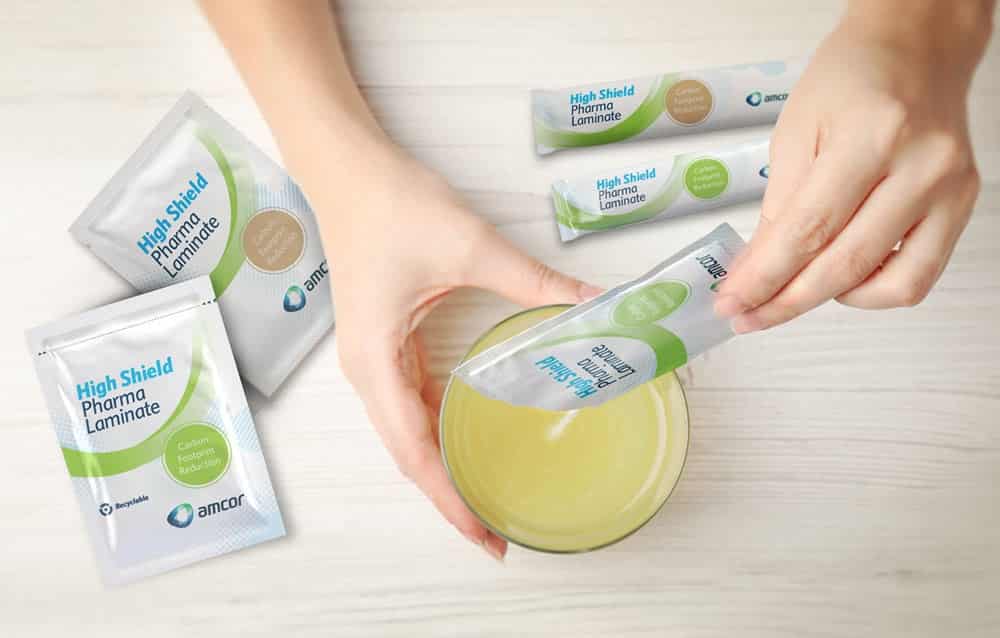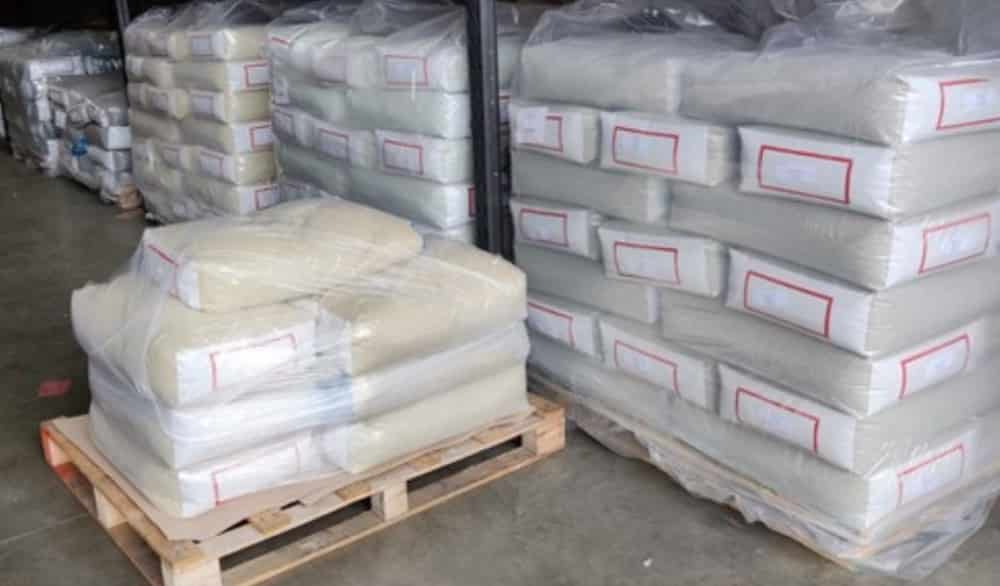Pharmaceuticals-packaging – Food-rPP 23-04-2022 - Arhive
Pharmaceuticals-packaging – Food-rPP
-Amcor launches more sustainable packaging for pharmaceuticals
Amcor a global leader in developing and producing responsible packaging solutions, today announced the addition of new, more sustainable High Shield laminates to its pharmaceutical packaging portfolio. The new low carbon, recycle-ready packaging options deliver on two fronts, providing the high barrier and performance requirements needed for the industry while supporting pharmaceutical companies’ recyclability agendas.
These new High Shield innovations include more sustainable pharmaceutical sachet, stickpack and strippack packaging, providing options in both paper-based and Polyolefin-based materials. The innovative material structure enables recycle-readiness in line with regional demands and supports the market differentiation efforts of pharmaceutical companies. Additionally, it enables manufacturers and packers to leverage existing filling machines, with no required investments or efficiency losses. Pharmaceuticals-packaging – Food-rPP
“Amcor’s addition of more sustainable High Shield Pharma Laminates in its portfolio demonstrate our unwavering commitment to innovation for the healthcare industry, as well as our promise to the environment,” said Virginie Maes, Vice President Healthcare for Amcor Flexibles EMEA. “To Amcor, nothing is more important in our healthcare packaging than delivering the safety and efficacy needed for medicine and medical devices that millions of people rely on every day.”
Global sales of pharmaceutical products, which many of these products rely on for their packaging, will reach $1.4 trillion by 2026, with the European market expected to grow 5.4% through 2028*. The more sustainable High Shield Pharma Laminates options for pharmaceutical sachet, stickpack and strippack packaging will first be introduced throughout Europe to help meet this growing demand and to address the sustainability requirements established by the European Union and regional governments. Pharmaceuticals-packaging – Food-rPP

-Nextloopp project to trial food-grade compliant rPP
Another landmark moment for the project
Nextek’s Nextloopp project has arrived at a decisive point in its progress towards closing the loop on post-consumer food-grade recycled polypropylene, or FgrPP. Following the successful trials at Tomra in September 2021, the 43-strong multi-participant global project is now moving forward with production trials of food-grade compliant rPP. Pharmaceuticals-packaging – Food-rPP
During the September trials, 99.9% sorting purity using Nextek’s invisible PolyPrism fluorescent markers was achieved. This, said Professor Edward Kosior, the driving force behind Nextloopp, was the real breakthrough: demonstrating that sorting into food packaging – as the current regulations require – is indeed possible, combined with the ability to clean and decontaminate recycled polypropylene packaging to food safety standards. For consumer safety, the European Food Standards Authority (EFSA) requires that recycled food-grade materials can only be made from (>95%) food packaging and that the recycled plastic must meet the same high standards required for virgin food-grade plastics.
Nextloopp is now dispatching its PPristine recycled PP prototype resins from post-consumer food packaging to its 43 participants for further trials, during which over 60 different products will be produced from Nextloopp’s four grades of PPristine food compliant and “INRT grade” resins. Pharmaceuticals-packaging – Food-rPP
This milestone confirms the project is poised to address the key challenges to recycling this valuable polymer, according to Luke Burgess, director of Business Development at Viridor, the UK’s largest recycling operator. It also opens up important commercial opportunities for the circular economy, he added.
Colleague participants concurred. Robinson Packaging’s Managing Director UK, Steve Haley, pointed to the rising demand for post-consumer recycled material and the need for a high-quality food-grade solution, while in Malaysia, Heng Hiap’s CEO, Kian Seah, foresaw demand for food-grade rPP soaring, driven by public and regulatory pressure as the world recovers from the Covid-19 pandemic.
Pro-Pac Packaging Group’s Category Manager–Food, Tim Strachan, says they are exploring innovative, sustainable change in rigid PP packaging driven by consumers, retailers and their customers who all want to make an impact.

–Amcor launches more sustainable-packaging-for-pharmaceuticals
–Nextloopp project to trial food-grade-compliant-rPP
–Encina Announces Major Investment in New Advanced Recycling-Manufacturing-Facility
–Spain introduces new indirect tax-on-non-reusable-plastic-packaging as of 1 January 2023
–China to up its textile-recycling-capability
–Consumer-Goods-Companies‘ Position on Chemical-Recycling (and LCA)
–Consumer Goods Forum outlines criteria for effective-chemical-recycling in industry study
–Aquafil-SPA : The new Sustainability-Report is online
Pharmaceuticals-packaging – Food-rPP
